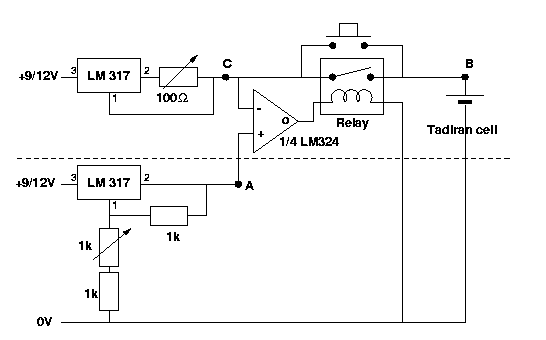
This is the recipe for making a charger for N Tadiran cells in parallel. It may charge the AA cells as well as the newer 2/3 AA ones.
It's principle is to have N independent current sources, and to monitor the voltages of the N cells by comparing against a reference voltage (3.4 V) provided by a voltage source. When this voltage is reached the cell is disconnected using a simple relay.
For N cells, you will need the following ingredients :

The top part is to replicate N times to get a charger for N cells.
The top part is mainly a constant current source (left). Initially the battery is discharged, so voltage at point B is lower than at point A. You press the pushbutton, which brings this voltage to point C. This brings the voltage at the output of the comparator to a value close to the alimentation, which switches on the relay. You may release the pushbutton. The voltage at point B/C will raise as the battery charges, and when it reaches the voltage at point A, the output of the comparator will go to 0V, which will switch off the relay and stop the charge.
The LM317 basically maintains a constant 1.25 V between pins 1 and 2.
Hence,
1/ The current of the current source is given by
1.25 Volts
I (Ampere) = --------------
Radj
2/ The voltage of the voltage source is given by
1k+Radj
U (V) = 1.25 ( 1 + --------- )
1k
The pinout of the LM 317T is as follows:
--------- _________
> O < 3 [ ] 2
--------- O------[ LM317 ]------O
| | PIN 1 - ADJUST [_________]
| LM317 | |
| | PIN 2 - OUTPUT | 1
--------- |
# # # PIN 3 - INPUT O
# # #
1 2 3
My favorite quad op amp. It works with a single alimentation.
Here is its pinout (view from top).
---0---0---0---0---0---0---0--
[ 4o 4- 4+ gnd 3+ 3- 3o ]
[ ]
> ]
[ ]
[ 1o 1- 1+ VCC 2+ 2- 2o ]
---0---0---0---0---0---0---0--
VCC may range from 3 to 30V.